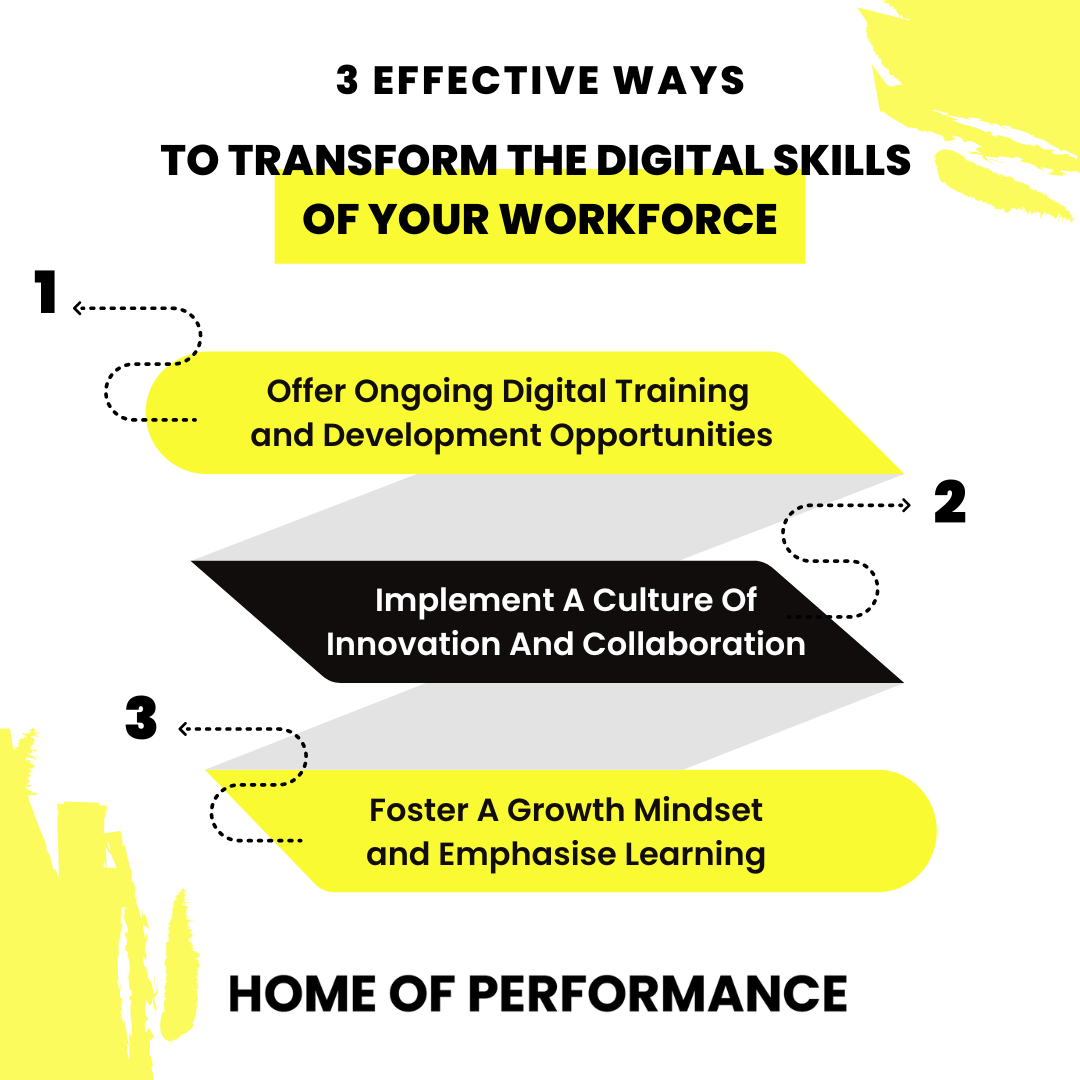In today’s digital age, it’s not enough to simply have a few tech-savvy employees – all staff members must be equipped with the necessary digital skills to thrive in a technology-driven workplace. However, with the constantly evolving digital landscape, it can be challenging for companies to keep up with the latest trends and technologies. This is why it’s crucial for businesses to have a strategy in place to transform the digital skills of their workforce.
We will explore three effective ways to achieve this transformation and ensure that your company stays competitive in the digital marketplace.

- Offer Ongoing Digital Training And Development Opportunities
With the emergence of new technologies and tools, it can be challenging for employees to keep up with the latest trends and best practices. To stay competitive, companies must make it a priority to invest in the digital skills of their workforce. One effective way to achieve this is through ongoing training and development opportunities.
Providing workshops, seminars, and online courses can help businesses equip their employees with the latest digital skills and knowledge. This not only benefits the employees but also the company, as it ensures that the workforce is up-to-date with the latest trends and technologies. Moreover, offering ongoing training and development opportunities demonstrates the company’s commitment to investing in the growth and development of its workforce. This can help to boost employee morale and create a culture of continuous learning and development, which can have a positive impact on productivity, innovation, and overall business success.
- Implement A Culture Of Innovation And Collaboration
By fostering a culture of innovation and collaboration, companies can encourage their employees to think creatively and work together to solve complex digital challenges. One effective way to achieve this is to encourage employees to experiment with new technologies and tools.
To do this, businesses can set up cross-functional teams to work on digital projects. This allows employees from different departments to work together and bring their unique perspectives to the project. By doing so, they can pool their collective knowledge and experience to create more innovative and effective solutions. Additionally, companies can create a platform for employees to share their ideas and innovations. This can be done through regular brainstorming sessions, innovation workshops, or even online platforms. By creating an environment where employees are encouraged to share their ideas and innovations, businesses can foster a culture of continuous improvement and innovation. Furthermore, companies can encourage staff to explore and experiment with new digital tools. This can also help them identify new opportunities for innovation and growth, and take ownership of digital initiatives.
- Foster A Growth Mindset And Emphasise Learning
As a business, fostering a growth mindset and emphasizing learning is crucial to stay competitive in the digital marketplace. One effective way to achieve this is by setting up a mentorship program. This allows employees to learn from more experienced colleagues, who can provide guidance and support as they navigate digital challenges. This encourages the development of new skills and knowledge, as well as provides a supportive environment for personal and professional growth.
Another way to foster a growth mindset is by providing regular feedback and recognition. Feedback can be used to identify areas where employees need to improve their digital skills, while recognition can be used to acknowledge and celebrate their achievements. Moreover, businesses can reward employees who take the initiative to develop their digital skills. This can be done through promotions, pay raises, or even simply recognizing them publicly for their efforts.
To Conclude
Transforming the digital skills of a workforce is essential in the digital age, and there are effective ways to achieve this. Providing ongoing training and development opportunities, implementing a culture of innovation and collaboration, fostering a growth mindset and emphasizing learning are all effective strategies.
By investing in the digital skills of their workforce, businesses can ensure that their employees have the latest knowledge and tools to tackle digital challenges. Furthermore, fostering a culture of continuous learning and development can have a positive impact on productivity, innovation, and overall business success.